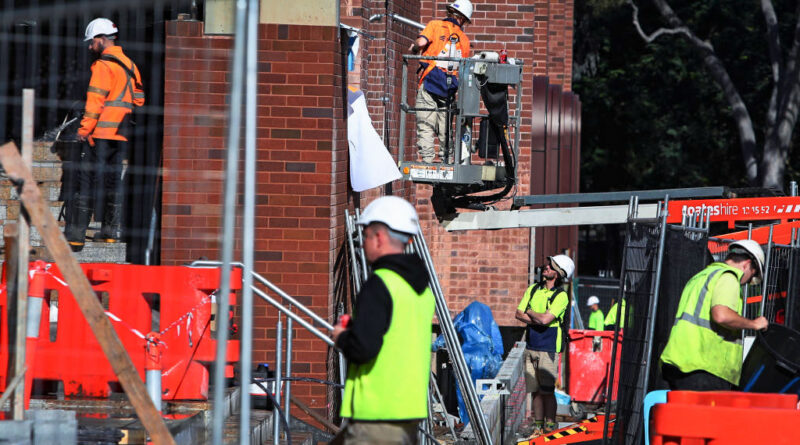New Policy Allows Housing Developers to Skip Council Approval
Large-scale housing proposals will be allowed to avoid council approval as Australia’s most expensive housing market continues to worsen with decade-low approvals.
Local communities will have limited say on major housing developments as New South Wales (NSW) faces a housing crisis.
Starting from early 2025, housing developments consisting of approximately 100 homes in greater Sydney can skip council approval and instead seek assessment from a new three-person panel.
In regional NSW, developments of around 40 homes or more will also have access to this new pathway.
Projects requiring rezoning can also apply to the three-member Housing Delivery Authority, bypassing council restrictions.
This decision follows a recent decline in monthly approvals to the lowest level in 11 years.
The annual home construction rate is currently at five new dwellings per 1,000 people— the lowest in the country.
The announcement of the authority, made on Nov. 15 without a press conference, was met with applause from developers and criticism from councils.
“Time and the cost of money in interest payments are too high, and the system needs to speed up—too many young people are leaving NSW,” commented Urban Taskforce chief executive Tom Forrest. “This is a significant reform.”
The Urban Development Institute of Australia mentioned that the new authority would offer greater certainty to the industry and a clearer pathway to address the housing crisis.
“It’s crucial that viable projects are expedited from concept to completion as swiftly as possible,” stated the institute’s NSW chief executive Stuart Ayres.
However, councils expressed dissatisfaction, referring to it as a “Christmas gift for developers.”
“By excluding councils from the rezoning process, you are essentially silencing the community’s voice,” remarked Local Government NSW President Darriea Turley. “This grants developers the authority to dictate height limits, density, and green spaces.”
She emphasized that delays were predominantly due to infrastructure challenges, material costs, labor, and financial issues— not councils, as often claimed by the state government.
The new authority will comprise the heads of premier’s department, planning department, and Infrastructure NSW— all reportable to ministers.
They will have the power to approve developments exceeding an estimated cost of $60 million in Sydney and $30 million in regional NSW, as well as recommend rezonings for projects with a significant housing impact.
Rezonings will be supervised by the planning department, with proposals evaluated against criteria aligning with the state’s housing priorities.
The government stated that these reforms would reduce the burden on councils to assess large and intricate development applications, allowing them to concentrate on simpler applications.
Almost 40% of development applications in NSW are not processed within the designated timeframe.
“NSW requires substantial new housing supply near existing infrastructure, but many locations in Sydney have imposed excessive barriers for too long,” said Premier Chris Minns.
The previous Labor government introduced controversial bypasses in 2005 that favored large-scale developments, but these powers were returned to councils after the coalition won the 2011 election.





